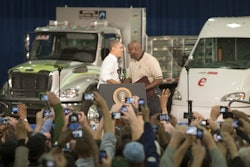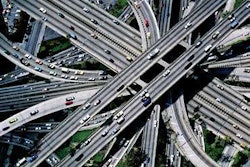The California Air Resources Board has granted Navistar International Corp. permission to continue to sell new heavy-duty truck engines in the state as long as the Warrenville, Ill.-based company still has enough credits to offset their engines’ noncompliance with federal emissions standards.
CARB previously had notified Navistar that the company’s emissions credits for the MaxxForce 13 would expire Feb. 29. Annette Hebert, chief of CARB’s mobile source operations division, told the Wall Street Journal that the agency will allow Navistar to sell engines in California as long as the company still has emissions credits. “Once they’re out of credits, they can’t,” Hebert told the Journal.
Most diesel engine manufacturers chose to use selective catalytic reduction aftertreatment technology to meet the required emissions levels. Navistar diesel engines use an in-cylinder exhaust gas recirculation technology to reduce exhaust emissions; the company is the only North American engine manufacturer to do so.
Currently, Navistar diesel engines emit more grams of nitrogen oxide than their competitors’ engines. But because Navistar exceeded the performance parameters set for earlier emissions reduction regulations, the company was awarded emissions credits by the U.S. Environmental Protection Agency that allow them to do so.
According to the Journal, CARB’s decision gives Navistar more time while its latest engines are evaluated by the agency and EPA for emissions compliance. Navistar has submitted its MaxxForce 13 diesel engine to EPA for compliance testing, the company told attendees at a stock analyst meeting on Feb. 1.
“The bottom line is that Navistar will sell engines in 2012 that are fully certified in all 50 states,” said Jack Allen, president of Navistar’s Engine Group, during the analysts’ meeting in Chicago. “Any issue between Navistar and the EPA will remain between us and the EPA and will not affect Navistar customers.”











